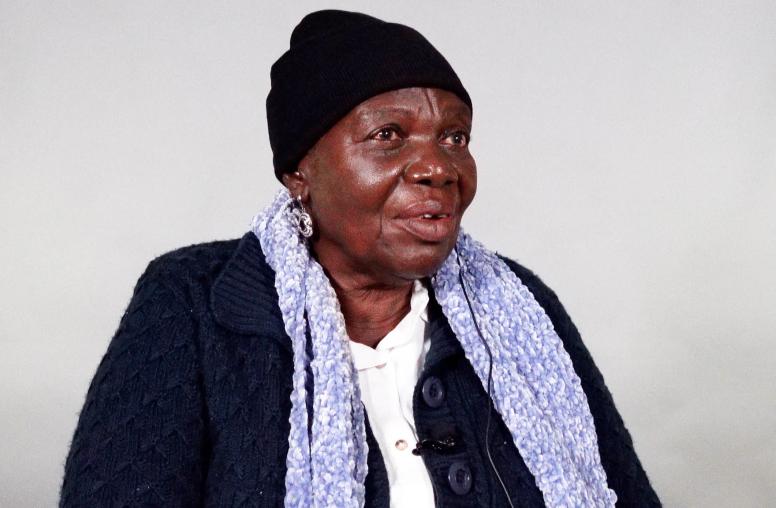Syria's Opposition
The uprisings in Syria that started in March have sparked international condemnation and concern over human rights abuses by the Assad regime. USIP’s Steven Heydemann discusses the state of Syria’s opposition and why the U.S. may be hesitant to recognize an emerging opposition.
September 20, 2011
 The uprisings in Syria that started in March have sparked international condemnation and concern over human rights abuses by the Assad regime. The United Nations estimates that at least 2,700 people have died from the regime’s crackdown on protesters over the last six months. However, the opposition has yet to present a united front and form a single leadership with which Western governments can engage.
The uprisings in Syria that started in March have sparked international condemnation and concern over human rights abuses by the Assad regime. The United Nations estimates that at least 2,700 people have died from the regime’s crackdown on protesters over the last six months. However, the opposition has yet to present a united front and form a single leadership with which Western governments can engage.
USIP’s Steven Heydemann discusses the state of Syria’s opposition and why the U.S. may be hesitant to recognize an emerging opposition.
- What is the current status of Syria’s opposition?
- With the formation of the SNC, what are the next steps for the Syrian opposition?
- How has the international community responded to the formation of the SNC?
What is the current status of Syria’s opposition?
For months, the Syrian opposition has struggled to overcome internal divisions and develop a unified leadership structure. It has confronted growing pressure, both from protest leaders inside Syria and from Western governments, to establish a framework that would provide more coherent leadership for Syria’s uprising and give the international community a single, legitimate counterpart with which to engage.
On September 15, following a number of false starts, a coalition of Syrian opposition leaders announced the formation of a Syrian National Council (SNC). The Council includes 140 members, with about 85 selected from the internal leadership of the Syrian uprising and 55 from the external leadership. The SNC released a National Consensus Charter affirming the peaceful, inclusive and non-sectarian character of the Syrian uprising, and committing the SNC to the establishment of a “modern civil state in which its constitution guarantees: equal rights among its citizens, the peaceful transfer of power, independence of the judiciary, rule of law, respect of human rights, freedom of the press, and political, cultural, religious, and personal rights for all components of Syrian society, within a context of national unity.”
With the formation of the SNC, what are the next steps for the Syrian opposition?
The SNC is viewed by many in the Syrian opposition as a step forward. It has been welcomed by many of the internal and external leaders of Syria’s uprising. Yet the SNC confronts a number of significant challenges. Most immediately, it will need to develop mechanisms for decision making, for representation of the internal opposition, and for the selection of an SNC leadership, that are widely seen within the opposition itself as inclusive, transparent, and fair.
The membership of the SNC is not entirely clear: only the names of some 73 members were released, including many opposition leaders who have become internationally prominent since the start of the uprising in March. However, the known members of the SNC also include a significant proportion of opposition figures associated with Islamist movements or trends—about half of the 73 names released—only a handful of women, and uneven representation from minorities. Some major opposition leaders, notably the leadership of the “Antalya Grouping,” have expressed concern about the Islamist profile of the SNC, and remain wary of associating with it. Ensuring that the SNC has broad-based and representative support, including from secularists, women, and minorities, will improve its long-term prospects. So will quick action to define how leaders are selected and decisions made. At present, and however promising the SNC’s formation might be, it is too soon to consider it as having consolidated its standing as the sole representative body of the Syrian uprising.
How has the international community responded to the formation of the SNC?
Reactions to the formation of the SNC have varied. France and Britain have issued statements expressing support for the formation of the SNC. The U.S. has not formally reacted to its creation. No Western government has, as yet, recognized the SNC’s leadership of the Syrian uprising.
For the U.S., there are several obstacles that could impede movement toward recognition. The first is the U.S.’s unease with the prominent role of Islamists in the SNC, despite the group’s commitment to pluralism. A second is its concern with Turkey’s growing influence over important elements of the opposition’s leadership, and perceptions among U.S. diplomats that Turkey seeks a Syrian opposition similar to Turkey’s own ruling party, the moderately Islamist Justice and Development Party. Whether the SNC is able to secure U.S. and international recognition will be heavily influenced by its response to these concerns, and its success—or failure—in securing the support of as broad a range of Syria’s opposition and Syrian society as possible.



